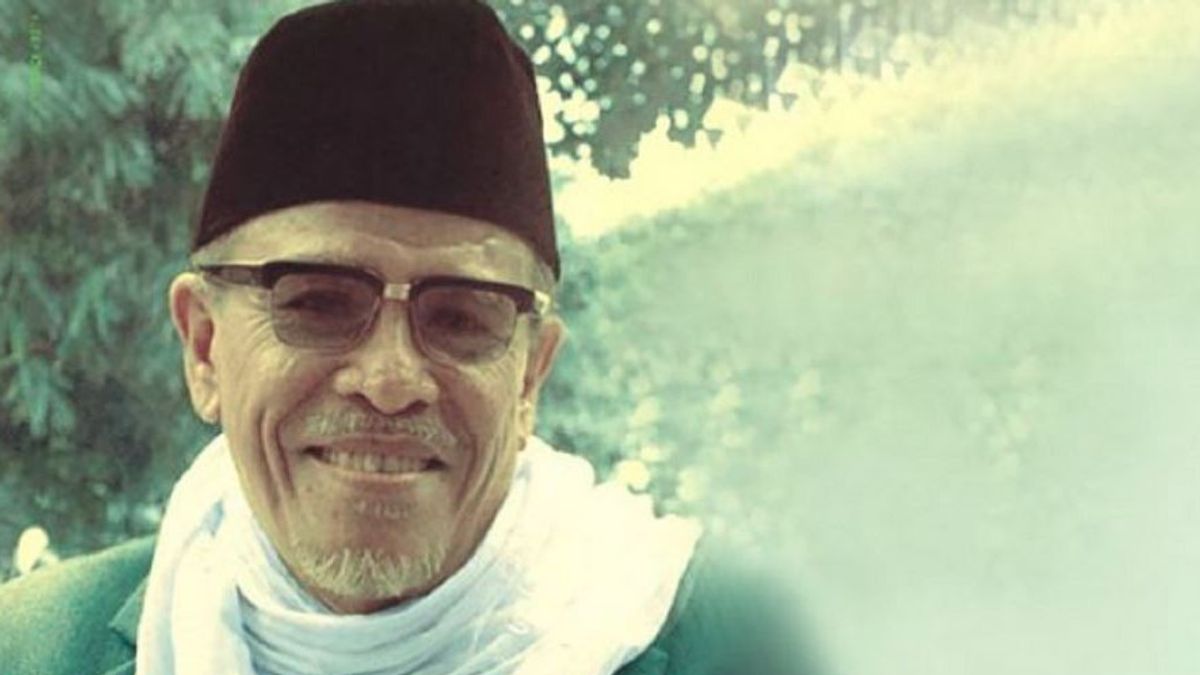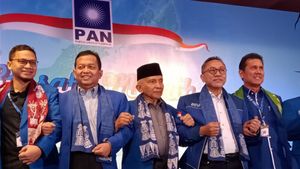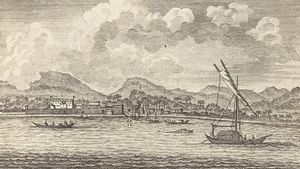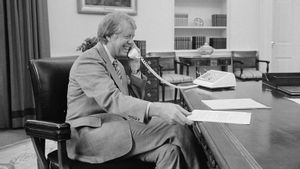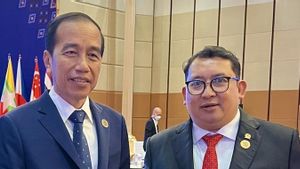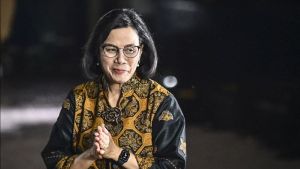JAKARTA History today, 47 years ago, August 25, 1976, General Chairperson of the Indonesian Ulema Council (MUI), Buya Haji Abdul Malik Karim Amrullah (Hamka) said the first precept was the root of Pancasila. Hamka said at the National Security Council (Wanhankamnas) meeting.
Previously, the presence of Pancasila was greeted with great fanfare. Pancasila is considered the true national narrative of Indonesia. Even though not a few are not satisfied with the loss of several words from the first precept.
Soekarno has an important role as a Pancasila digger. He often contemplated the points of Pancasila in his long reflection of the fate of the bumiputras. The result was brilliant. He launched the ideological formulation on June 1, 1945.
Bung Karno described one by one what he meant. First, the Indonesian nationality. Second, internationalism or humanity. Third, consensus or democracy. Fourth, social welfare. Fifth, Godhead.
Everyone who was present at the Chuo Sangi Building in Pejambon, Jakarta, greeted him with great fanfare. The roar of applause was even more heard. Even so with cheers. A few days later, the nation's leaders began to adjust Pancasila to the Indonesian narrative.
All national figures from nationalists to religious circles agree if the matter of God is the main thing. However, Islamic figures ask that the formulation of a 'one God Almighty' must be added with an accompanying sentence: with the obligation to carry out Islamic law for its adherents.
Fierce debates occur. That desire is difficult to perpetuate. Because, Indonesia consists of various religions. Everything then agreed that Pancasila for the first precept was enough with a golden narrative. The narrative is considered capable of representing all existing religions.
In order to maintain the integrity of the nation at these critical times, they agreed to abolish references to Islam in the text of the Mukaddimah of the Constitution. Instead, Wahid Hasyim (Abdurrahman Wahid's father: Gus Dur) suggested that the Jakarta Charter be replaced with the formulation of the Almighty One, the addition of Esa's word underlined the oneness of God (tauhid) which was not found in other religions.
"Thus, Indonesia will not become an Islamic state, but become a monotheist country. The President must be appointed from the original Indonesian, without clear provisions regarding his religion. The President, as well as the Vice President, is free to choose the ceremony for taking the oath of office, religiously or promises," said Feillard in the bookNU vis-vis Negara: Search for Contents, Shape and Meaning (1999).
The loss of accompanying sentences has often been a debate among Islamic groups for a long time. They think that the accompanying sentence should not be removed. Because, the accompanying sentence represents Indonesia which is inhabited by the majority of Islam.
SEE ALSO:
The General Chairperson of the MUI, Buya Hamka, did not really mind this. For him, the first precept was agreed upon by an Islamic figure on August 18, 1945. He felt that the divine narrative was sufficient. Even Muslims are asked to just believe that the God in question is Allah. Not anything else.
He mentioned that the first precept was the main root of Pancasila. The first principle of sila was the determinant of the presence of other precepts. That is, believing in God makes humans able to be civilized, united, and fair. All of this was revealed by Hamka in his lecture at the Wanhankamnas meeting at the Nurul Islam Foundation, Jakarta, August 25, 1976.
"Hamka said that God Almighty is a logical consequence of the other four precepts, namely that people who believe in God must be humane. People who believe in God must maintain Indonesian unity, must do social justice, because they believe in God and because Indonesian unity is our promise as a conscious nation.
The One Godhead is the lifeblood or the root of the goals of Pancasila and the Indonesian nation, while the other four precepts are the result of the first precepts. Hamka, for example, explains that humanity is a result that arises directly from faith in God Almighty, while he criticizes various theories about humanity that cannot be guaranteed his honesty as long as it is not based on One Supreme God, "explained Adian Husaini and Bambang Galih Setiawan in the book THINKing and Struggle: M. Natsir & Hamka in Education(2020).
The English, Chinese, Japanese, Arabic, and French versions are automatically generated by the AI. So there may still be inaccuracies in translating, please always see Indonesian as our main language. (system supported by DigitalSiber.id)
